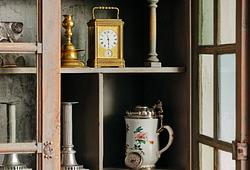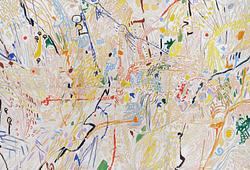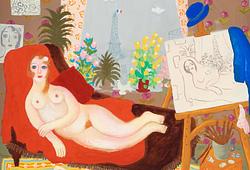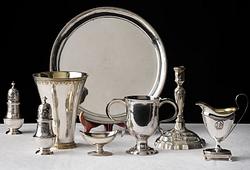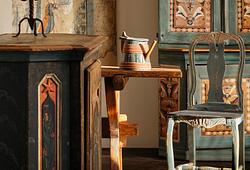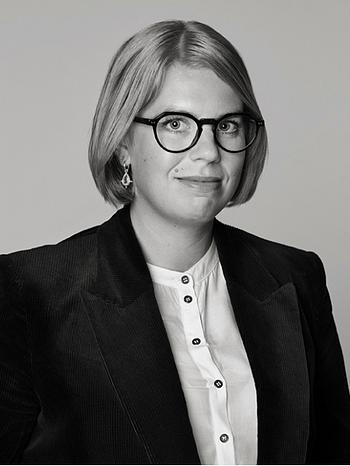Olle Bonniér
Positiv-Negativ ”Detalj ur ridån till Lycksele seminarium”
Signed O.Bonnier. Executed in 1954. Canvas 203 x 135 cm.
Alkuperä - Provenienssi
Bukowskis Auctions, Modern Spring Auction, 2005, cat. no. 177.
Private collection.
Muut tiedot
Olle Bonniér was well acquainted with international concretism, but he quickly broke with its limitations. His work has a shamanistic, almost magical quality, but also the idea that the work is not just what is visible within the picture. It can associate with sound, light, and above all extend far beyond its boundaries. “Positive-Negative” is a dramatic meeting of strong colors that collide and produce an almost explosive composition. The colors are charged with positive and negative energy, giving rise to a dynamic where the shapes are set in motion and the contours grab each other and stop the movement for a short time, the result is a documentation of a constant ongoing process.
The painting “Positive-Negative” is a “detail” for a curtain at the junior school in Lycksele. Today the school is called Johan Skyttes and is a modern school housed in an older cultural-historical environment. In “Positive-Negative”, a variety of colors and shapes interact on the surface to equilibrium fields that together become a harmonious whole. 1947 Olle Bonniér debuted at the collective exhibition “Young Art” where concretism was given its program statement. Along with Lennart Rodhe, Arne Jones, Lage Lindell and Karl-Axel Pehrson, among others, Olle Bonniér was captured by Concretism, whose role models were Paul Klee and his systematic experiments with visual illusions and formal relationships. Bonniér left representational painting at an early stage and focused on organizing the picture surface in geometric figures; another strong source of inspiration for him was the Réalités Nouvelles exhibitions in Paris. In 1948 Bonnier wrote the text in Prisma that came to be understood as the Concretists' program statement: “In concrete painting, the objects have disappeared, consciousness has withdrawn from the external form it previously concentrated on, into itself, and what is more: starting from the abstract idea of the total value of dynamic forces, the painter goes to work with the intention of letting the given surface be the field of equilibrium in which its forces sow their concrete form. The diversity of forms disappears, replaced by one form: the pictorial surface with its countless possibilities of expression.”




